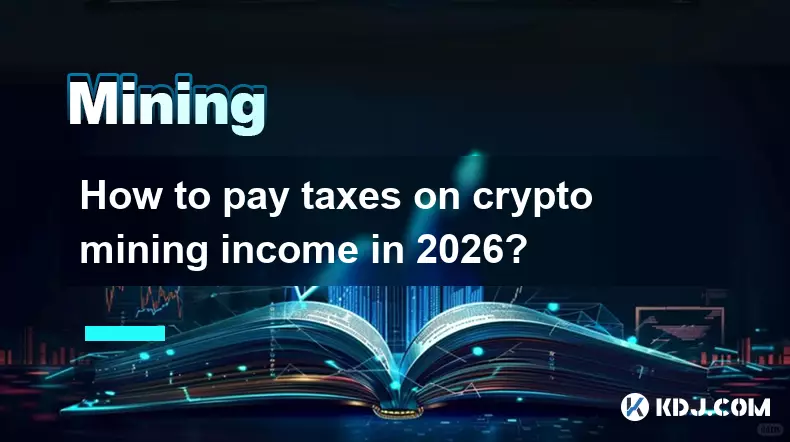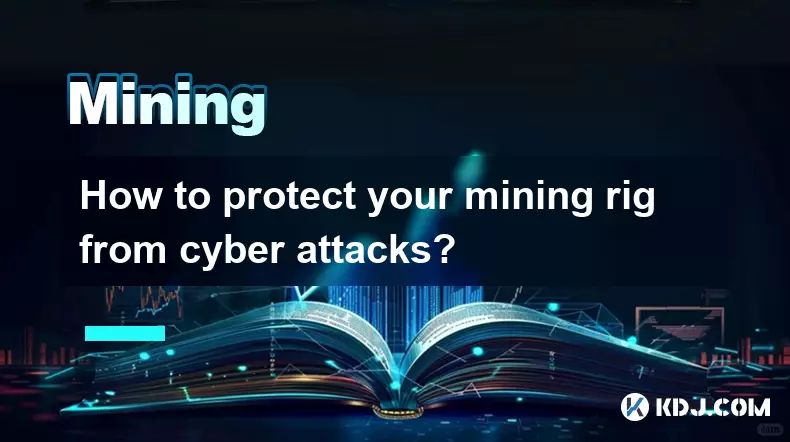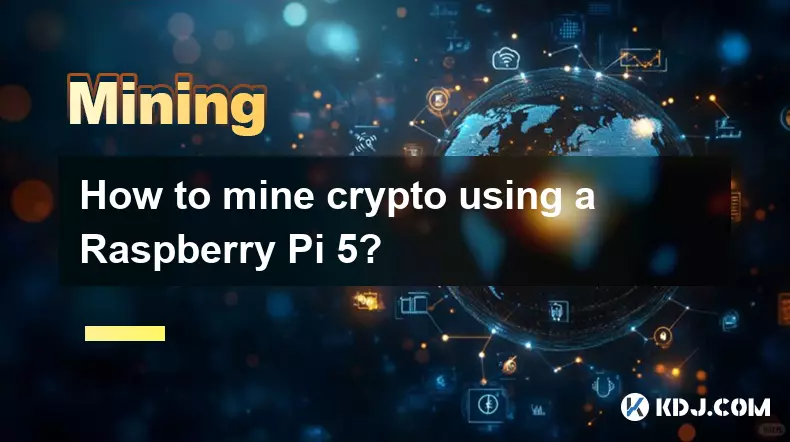-
 bitcoin
bitcoin $87959.907984 USD
1.34% -
 ethereum
ethereum $2920.497338 USD
3.04% -
 tether
tether $0.999775 USD
0.00% -
 xrp
xrp $2.237324 USD
8.12% -
 bnb
bnb $860.243768 USD
0.90% -
 solana
solana $138.089498 USD
5.43% -
 usd-coin
usd-coin $0.999807 USD
0.01% -
 tron
tron $0.272801 USD
-1.53% -
 dogecoin
dogecoin $0.150904 USD
2.96% -
 cardano
cardano $0.421635 USD
1.97% -
 hyperliquid
hyperliquid $32.152445 USD
2.23% -
 bitcoin-cash
bitcoin-cash $533.301069 USD
-1.94% -
 chainlink
chainlink $12.953417 USD
2.68% -
 unus-sed-leo
unus-sed-leo $9.535951 USD
0.73% -
 zcash
zcash $521.483386 USD
-2.87%
Bitcoin Computer Mining Tutorial
Bitcoin mining involves using specialized hardware (ASICs or GPUs) to verify transactions and add new blocks to the blockchain, incentivized by rewards in newly created Bitcoin.
Jan 11, 2025 at 05:30 pm

- What is Bitcoin mining?
- How does Bitcoin mining work?
- What are the different types of Bitcoin mining hardware?
- What are the costs involved in Bitcoin mining?
- How to choose the right Bitcoin mining hardware?
- How to set up a Bitcoin mining operation?
- How to optimize Bitcoin mining profitability?
What is Bitcoin Mining?
Bitcoin mining is the process of verifying and adding new transactions to the Bitcoin blockchain. Miners use specialized hardware to solve complex mathematical problems that are required to create new blocks on the blockchain. The first miner to solve the problem receives a reward in the form of newly created Bitcoin.
How Does Bitcoin Mining Work?
Bitcoin mining is a complex process that involves several steps:
- Transaction Verification: Miners collect pending Bitcoin transactions and verify their validity by checking if they are properly signed and do not spend the same coins twice.
- Block Creation: Verified transactions are grouped into blocks, which contain a header with information about the block and the transactions it includes.
- Nonce Generation: Miners generate a random number called a nonce and add it to the block header.
- Hashing: The block header is hashed using a cryptographic function called SHA-256.
- Difficulty Adjustment: The difficulty of the hashing problem is adjusted based on the computing power of the network to maintain a block creation time of approximately 10 minutes.
- Block Validation: If the hash of the block header meets the current difficulty requirement, it is considered valid and added to the blockchain.
What are the Different Types of Bitcoin Mining Hardware?
There are two main types of Bitcoin mining hardware:
- ASICs (Application-Specific Integrated Circuits): ASICs are specialized mining devices designed specifically for Bitcoin mining. They are highly efficient and have a much higher hash rate than other types of hardware.
- GPUs (Graphics Processing Units): GPUs are initially developed for gaming purposes. However, they can also be used for Bitcoin mining due to their parallel processing capabilities. GPUs are less efficient than ASICs but are more versatile.
What are the Costs Involved in Bitcoin Mining?
The costs involved in Bitcoin mining include:
- Hardware: The cost of Bitcoin mining hardware can range from a few hundred dollars for a GPU to tens of thousands of dollars for an ASIC.
- Electricity: Bitcoin mining consumes a significant amount of electricity, which can be a major expense.
- Cooling: Mining hardware generates a lot of heat, so it is necessary to invest in proper cooling equipment.
- Pool Fees: Miners often join mining pools to increase their chances of finding blocks. Pool fees can vary depending on the pool.
How to Choose the Right Bitcoin Mining Hardware?
The right Bitcoin mining hardware depends on a number of factors:
- Hash Rate: The hash rate determines the speed at which a miner can solve mathematical problems and create blocks.
- Power Consumption: The power consumption of a miner determines how much electricity it will use.
- Cost: The cost of a miner must be considered in relation to its potential profitability.
- Availability: Some mining hardware is in high demand and may not be readily available.
How to Set Up a Bitcoin Mining Operation?
Setting up a Bitcoin mining operation involves the following steps:
- Obtaining Hardware: Purchase Bitcoin mining hardware from a reputable supplier.
- Building a Mining Rig: If necessary, assemble the mining hardware into a mining rig.
- Joining a Mining Pool: Choose a reliable mining pool and join it to increase your chances of finding blocks.
- Configuring the Software: Install and configure mining software, such as CGMiner or cudaminer.
- Starting the Mining Process: Launch the mining software and start mining Bitcoin.
How to Optimize Bitcoin Mining Profitability?
There are several ways to optimize Bitcoin mining profitability:
- Overclocking: Overclocking your mining hardware can increase its hash rate and profitability. However, this can also increase power consumption and heat generation.
- Underclocking: Underclocking your mining hardware can reduce power consumption and heat generation while maintaining stable operation.
- Cooling: Ensure that your mining rig is properly cooled to prevent overheating and hardware damage.
- Mining Pool Selection: Choose a mining pool with a low fee structure and a high payout rate.
- Monitoring: Monitor your mining operation regularly to identify any potential issues and make adjustments as necessary.
- What is the profitability of Bitcoin mining?
- The profitability of Bitcoin mining varies depending on factors such as the price of Bitcoin, the difficulty of the mining network, and your mining costs.
- Is it still profitable to mine Bitcoin?
- The profitability of Bitcoin mining has declined over time as the difficulty of the mining network has increased. However, it can still be profitable to mine Bitcoin if you have efficient hardware and low electricity costs.
- Can I use personal computers to mine Bitcoin?
- You can use personal computers to mine Bitcoin, but it is not advisable as they are much less efficient than dedicated mining hardware.
- Is Bitcoin mining legal?
- Bitcoin mining is legal in most countries, although some countries have regulations or restrictions on crypto mining operations.
- How can I calculate my potential mining profitability?
- There are several online calculators available that can help you calculate your potential mining profitability based on your hardware and electricity costs.
Disclaimer:info@kdj.com
The information provided is not trading advice. kdj.com does not assume any responsibility for any investments made based on the information provided in this article. Cryptocurrencies are highly volatile and it is highly recommended that you invest with caution after thorough research!
If you believe that the content used on this website infringes your copyright, please contact us immediately (info@kdj.com) and we will delete it promptly.
- Hyperliquid's HIP-3 Ignites DEX Launch Frenzy: Proof-of-Activity and IP Membership Set to Reshape Trading
- 2026-02-07 13:00:02
- Hold Onto Your Hats: 1983 'New Pence' 2p Coins Could Be Worth £1,000 Today!
- 2026-02-07 12:40:07
- Bithumb's Bitcoin Bonanza: An Accidental Windfall Triggers Localized Market Dump
- 2026-02-07 10:10:01
- Big Apple Bites: While Ethereum Grapples, DeepSnitch AI Whispers of a 1000x Run
- 2026-02-07 06:30:02
- Token cat appointments furong tian to lead audit Amdst Strategic Reshffle
- 2026-02-07 06:40:01
- Coinbase Expands Roadmap, Navigating Cryptocurrency's Evolving Landscape
- 2026-02-07 10:05:02
Related knowledge

How to mine Conflux on a standard gaming laptop?
Feb 07,2026 at 04:19am
Hardware Requirements for Conflux Mining1. Conflux uses a proof-of-work consensus mechanism called Tree-Graph, which is designed to be ASIC-resistant ...

How to mine Flux with a 30-series Nvidia GPU?
Feb 07,2026 at 02:40pm
Market Volatility Patterns1. Bitcoin price movements often exhibit sharp intraday swings exceeding 5% during low-liquidity windows, particularly betwe...

How to pay taxes on crypto mining income in 2026?
Feb 07,2026 at 01:20am
Tax Classification of Mining Rewards1. Cryptocurrency received as mining rewards is treated as ordinary income by most major tax jurisdictions includi...

How to find the lowest fee mining pools for BTC?
Feb 07,2026 at 01:00pm
Fee Structure Transparency1. Most reputable BTC mining pools publish their fee schedules directly on their official websites, often under sections lab...

How to protect your mining rig from cyber attacks?
Feb 05,2026 at 09:40pm
Secure Firmware Updates1. Always verify the digital signature of firmware before installation to ensure authenticity and integrity. 2. Disable automat...

How to mine crypto using a Raspberry Pi 5?
Feb 07,2026 at 08:00am
Hardware Requirements for Raspberry Pi 5 Mining1. A Raspberry Pi 5 unit with at least 4GB of RAM is essential for stable operation under continuous co...

How to mine Conflux on a standard gaming laptop?
Feb 07,2026 at 04:19am
Hardware Requirements for Conflux Mining1. Conflux uses a proof-of-work consensus mechanism called Tree-Graph, which is designed to be ASIC-resistant ...

How to mine Flux with a 30-series Nvidia GPU?
Feb 07,2026 at 02:40pm
Market Volatility Patterns1. Bitcoin price movements often exhibit sharp intraday swings exceeding 5% during low-liquidity windows, particularly betwe...

How to pay taxes on crypto mining income in 2026?
Feb 07,2026 at 01:20am
Tax Classification of Mining Rewards1. Cryptocurrency received as mining rewards is treated as ordinary income by most major tax jurisdictions includi...

How to find the lowest fee mining pools for BTC?
Feb 07,2026 at 01:00pm
Fee Structure Transparency1. Most reputable BTC mining pools publish their fee schedules directly on their official websites, often under sections lab...

How to protect your mining rig from cyber attacks?
Feb 05,2026 at 09:40pm
Secure Firmware Updates1. Always verify the digital signature of firmware before installation to ensure authenticity and integrity. 2. Disable automat...

How to mine crypto using a Raspberry Pi 5?
Feb 07,2026 at 08:00am
Hardware Requirements for Raspberry Pi 5 Mining1. A Raspberry Pi 5 unit with at least 4GB of RAM is essential for stable operation under continuous co...
See all articles










































































